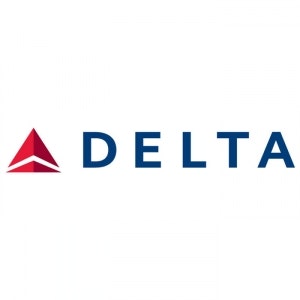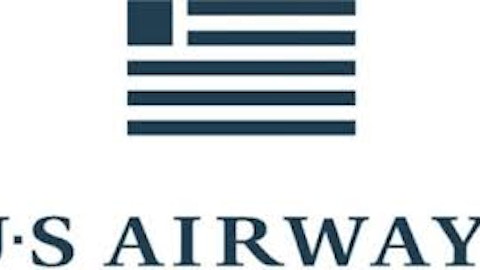Over the past several years, Seattle has become an important international gateway for Delta Air Lines, Inc. (NYSE:DAL). While Delta Air Lines, Inc. (NYSE:DAL) does not operate a hub in Seattle, it began code-sharing with Seattle-based Alaska Air Group, Inc. (NYSE:ALK) in 2005 and has gradually expanded that partnership . This relationship simplifies connections between Alaska Air Group, Inc. (NYSE:ALK)’s extensive Seattle-based route network and Delta Air Lines, Inc. (NYSE:DAL)’s flights from Seattle (especially international flights).
In the past year, Delta Air Lines, Inc. (NYSE:DAL) has doubled down on its Seattle presence. The carrier has announced (or begun serving) several new international routes, has added service to Los Angeles — its other West Coast international gateway — and has upgraded its amenities in Seattle. These initiatives are likely to solidify Delta Air Lines, Inc. (NYSE:DAL)’s place as the carrier of choice for international travel from Seattle and as Alaska Air Group, Inc. (NYSE:ALK)’s primary partner. They will also boost Delta Air Lines, Inc. (NYSE:DAL)’s market share for travel between the U.S. and Asia.
A natural strategy
Geographically, Seattle is an ideal connection point for fliers traveling between the U.S. and East Asia, due to its location in the northwest corner of the U.S. Seattle is even a good connection point between the West Coast and Europe. However, Alaska Airlines is the only carrier with a hub in Seattle, and its all-The Boeing Company (NYSE:BA) 737 fleet does not have enough range to fly to Europe or Asia.
Meanwhile, Delta’s network is primarily centered in the eastern half of the U.S.; its largest hubs are in Atlanta, Detroit, and Minneapolis/St. Paul . None of these cities is a particularly good connection point to Asia. In order to improve its international route map, Delta is looking to add international flights from Seattle, while using its codeshare with Alaska to generate domestic “feed” for these flights.
Rapid expansion
Delta’s growth in Seattle has hit a tipping point in the last year. Last October, the company announced a variety of enhancements to its Seattle service, including a new Delta Sky Club, more full flat-bed business class seats, and more capacity to major markets like New York and Tokyo. At that point, Delta already offered nonstop flights to five international markets from Seattle: Amsterdam, Beijing, Osaka, Paris, and Tokyo-Narita. (Direct service to Osaka will end in November, an apparent casualty of the falling yen .)
In early June, Delta started service from Seattle to Tokyo’s Haneda Airport, complementing its flights to Narita . Haneda is much closer to the Tokyo city center, but for the most part, international flights must go through Narita. This makes Delta’s Seattle-Haneda route very desirable. This flight replaced an underperforming route between Detroit and Haneda Airport.
Later in June, Delta added another important international destination to its Seattle route map with the start of nonstop service to Shanghai . In July, Delta announced a new route from Seattle to London’s Heathrow Airport , which will begin next March. This is one of the first new routes enabled by Delta’s recent purchase of a 49% stake in British carrier Virgin Atlantic .
Just last week, Delta announced two new nonstops to Asia planned for 2014. Delta hopes to begin flying from Seattle to Seoul and Hong Kong next June, thereby adding two more big Asian business markets to its Seattle route map .As a further demonstration of its commitment to the Seattle market, earlier this month Delta appointed one of its vice presidents to oversee the company’s efforts in Seattle.
Stealing a march
Delta’s recent growth in Seattle — particularly for international flights — will give it a firm foothold in the market. In doing so, Delta may have stolen a march on American Airlines parent AMR Corporation (OTCMKTS:AAMRQ). American also has a codeshare relationship with Alaska Airlines , but it has not been able to leverage that partnership as well as Delta.
Today, American’s Asian route network severely lags Delta’s. While AMR Corporation (OTCMKTS:AAMRQ) has publicly stated that it plans to focus its growth on five “cornerstone” cities — Dallas/Fort Worth, Chicago, Miami, Los Angeles, and New York, none of these hubs can match Seattle as an Asian gateway. However, with Delta already entrenched in Seattle, American will probably have to make do with its existing gateways and sparser Asian route network.
The article Delta Ups the Ante in Seattle originally appeared on Fool.com and is written by Adam Levine-Weinberg.
Fool contributor Adam Levine-Weinberg has no position in any stocks mentioned. The Motley Fool has no position in any of the stocks mentioned.
Copyright © 1995 – 2013 The Motley Fool, LLC. All rights reserved. The Motley Fool has a disclosure policy.





